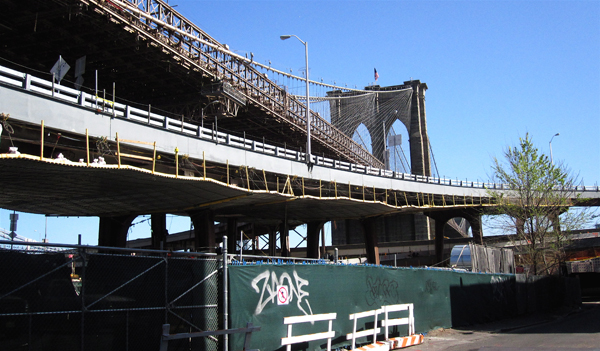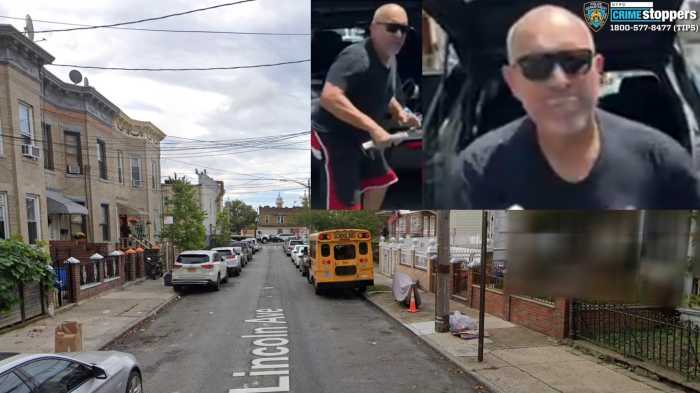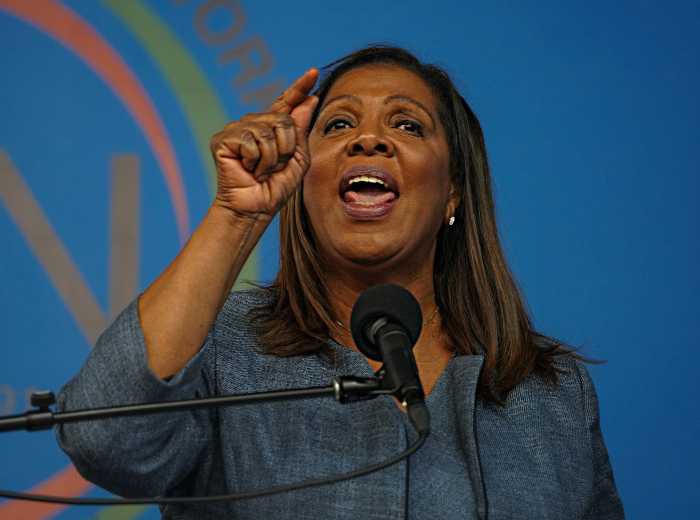 [/media-credit]
[/media-credit]
- An on ramp is one of the many parts of the Brooklyn Bridge undergoing noisy construction work during nights.
BY ALINE REYNOLDS | Residents in the Financial District, the South Street Seaport and the Lower East Side are so fed up with the jackhammering and other evening construction racket coming from the Brooklyn Bridge that some of them are thinking of taking the city to court.
But officials from the city Department of Transportation contend that the nighttime work is legal and that shifting the work to the day, as residents would like, is out of the question because of the traffic nightmare it would cause.
Nighttime noise generated by the bridge’s overhaul might get worse before it gets better as the workers begin to renovate the Frankfort St. ramp in the coming weeks, according to D.O.T. officials. The agency is overseeing the $508 million project, slated to be completed in 2014. The work involves replacing existing roadways, adding lanes to ramps and rebuilding rusty railings and safety barriers.
Since it will require extensive closures of bridge lanes, the majority of the construction moving forward will occur overnight when traffic volume on the bridge is the lightest, according to D.O.T. spokesperson Seth Solomonow. All Manhattanbound traffic will be diverted to other East River crossings at these times.
Shutting down parts of the bridge during the day would upset the traffic flow of the more than 120,000 vehicles, 4,000 pedestrians and 3,100 cyclists who cross the bridge daily, according to D.O.T.
“It would displace tens of thousands of vehicles onto local streets during the busiest periods, including on weekends, having a tremendous impact on traffic, emergency responders and the many truck-dependent projects underway in Lower Manhattan, all while significantly lengthening the overall duration of this and many projects,” Solomonow said.
D.O.T. is currently abiding by noise regulations, which are overseen by the city Department of Environmental Protection. D.O.T. is working with D.E.P. to use sound mufflers and other noise-mitigation techniques, according to Solomonow and D.E.P. spokesperson Mercedes Padilla. D.O.T. received noise violations last summer when workers had to remove old trolley tracks found underneath the bridge’s roadway.
“We are taking steps to significantly reduce the long-term duration of work at this location,” Solomonow said.
But neighbors desperate for a good night’s sleep say they’ve endured more than their fair share of overnight commotion since the bridge construction began in 2010. Democratic District Leader Alice Cancel, a Southbridge Towers resident, is considering moving out of her apartment because of the noise, which allows her a mere three hours of sleep per night.
Cancel has attempted to drown out the jarring sounds with white noise and earplugs, but the drilling continues to rouse her at 2 a.m.
“The sound is unbearable. It’s been two years of abuse,” said Cancel. “I think our best bet is maybe to take them to court.”
Patrick Samtani, a resident of New York by Gehry (formerly known as Beekman Tower), at 8 Spruce St., said the constant buzzing noise has become increasingly bothersome in the last month and typically keeps him tossing and turning in bed until 5 a.m.
D.O.T. should schedule daytime work in between the morning and evening rush hours, Samtani said.
“If I had known the noise would get this bad, I wouldn’t have moved here in the first place,” Samtani said. “This really has to stop.”
D.O.T. must find a way to work during the day, echoed Patricia Ryan, a Southbridge Towers resident for 35 years.
“We love the bridge, and we all understand that the bridge has to be fixed,” Ryan said. “But there are some nights where you want to tear your hair out.”
Backing residents’ plea, Assembly Speaker Sheldon Silver wrote a letter to D.OT. Commissioner Janette Sadik-Khan last week asking that D.O.T. and the city Department of Buildings cease issuing after-hours work variances outside of the standard business hours of Monday to Friday, 7 a.m. to 6 p.m. Silver, along with state Senator Daniel Squadron and Councilmember Margaret Chin, previously wrote to Sadik-Khan in January, asking that D.O.T. perform the loudest work during daytime hours only.
“I understand that in the days before our residential population boom, granting lots of after-hours permits made some sense and did not cause too many problems,” Silver wrote Sadik-Khan. “Today, however, it is simply too disruptive to our residents’ quality of life.”
In a phone interview, Silver said a lawsuit may be the community’s only recourse.
“It’s just getting out of control,” Silver said. “The fact remains, the only solution is daytime construction.”
According to housing attorney John Gorman, however, residents would be on shaky legal ground to sue the city for the disturbances caused by the project.
“A court is going to recognize that having the bridge functioning safely is going to outweigh the inconvenience and disturbance of the residents,” Gorman said. “It doesn’t mean they can’t sue, but their chances for recovering [payment for damages] are going to be slight.”
Residents were particularly infuriated when D.O.T. recently refused to tell them the actual decibel levels of the bridge work, instead telling them to file a Freedom of Information Law (FOIL) request to obtain that information.
But Solomonow maintained that’s standard procedure.
“We use the FOIL process for documents such as these, for this and on many other projects,” he said.
But the residents and elected officials believe it’s a sign of nontransparency and uncooperative behavior.
“The community board is a city agency, and we have to FOIL information? It’s nonsense,” said John Fratta, chairperson of C.B. 1’s Seaport-Civic Center Committee. Fratta’s committee drafted a resolution last week requesting that D.O.T. close off the bridge to traffic during the day so as to eliminate nighttime work.
Silver also deemed D.O.T.’s refusal to supply the noise-level readings unacceptable.
“To me, it’s a total disrespect to the community,” Silver said.
As of now, the bridge will be closed to Manhattanbound traffic nightly between 11 p.m. and 6 a.m. Sunday night to Friday, Saturdays between midnight and 7 a.m. and Sundays between midnight and 9 a.m. For more information, contact Sabrina Lau, D.O.T. community affairs liaison, at Brooklynbridgeoutreach@gmail.com .




































